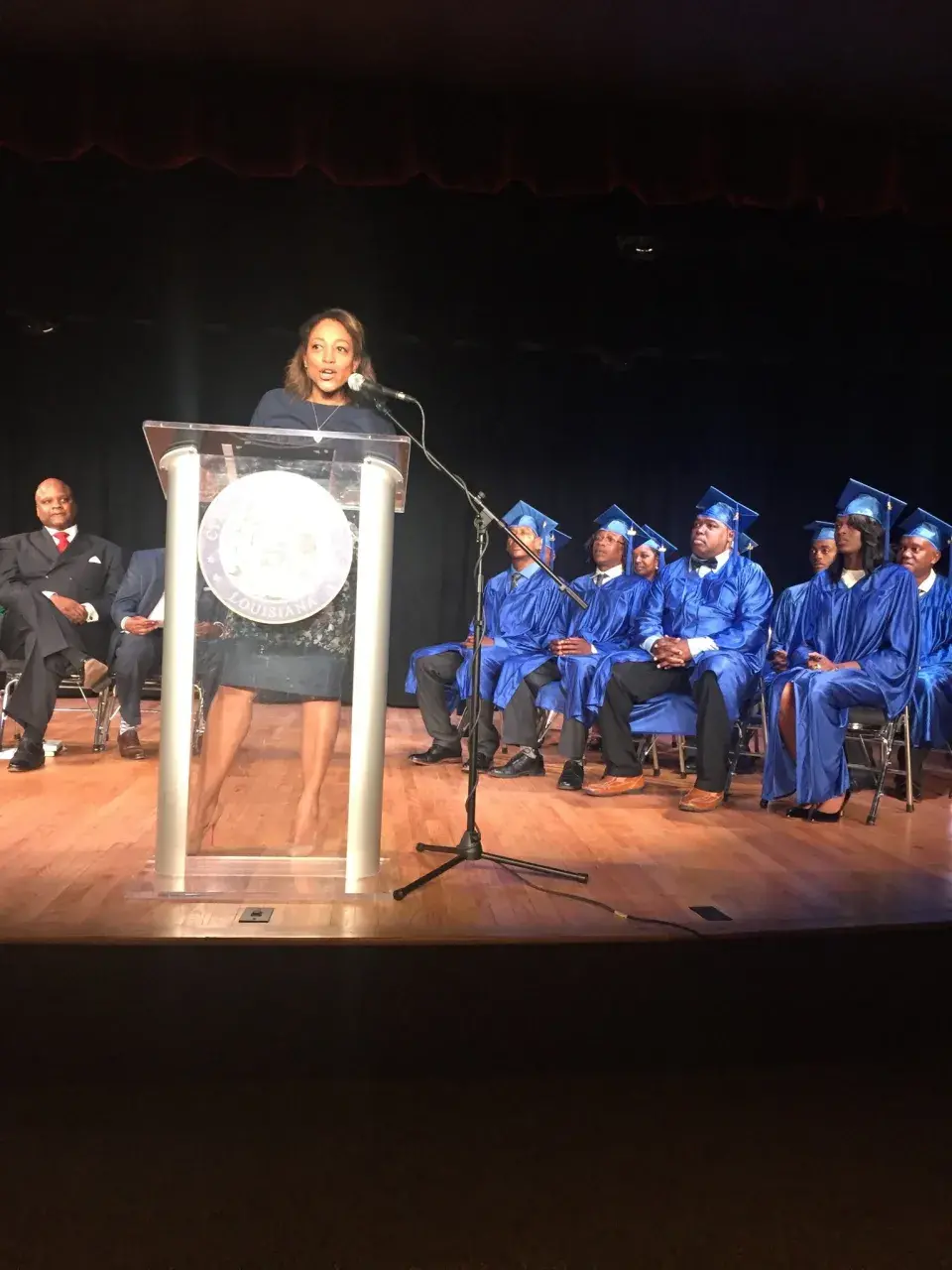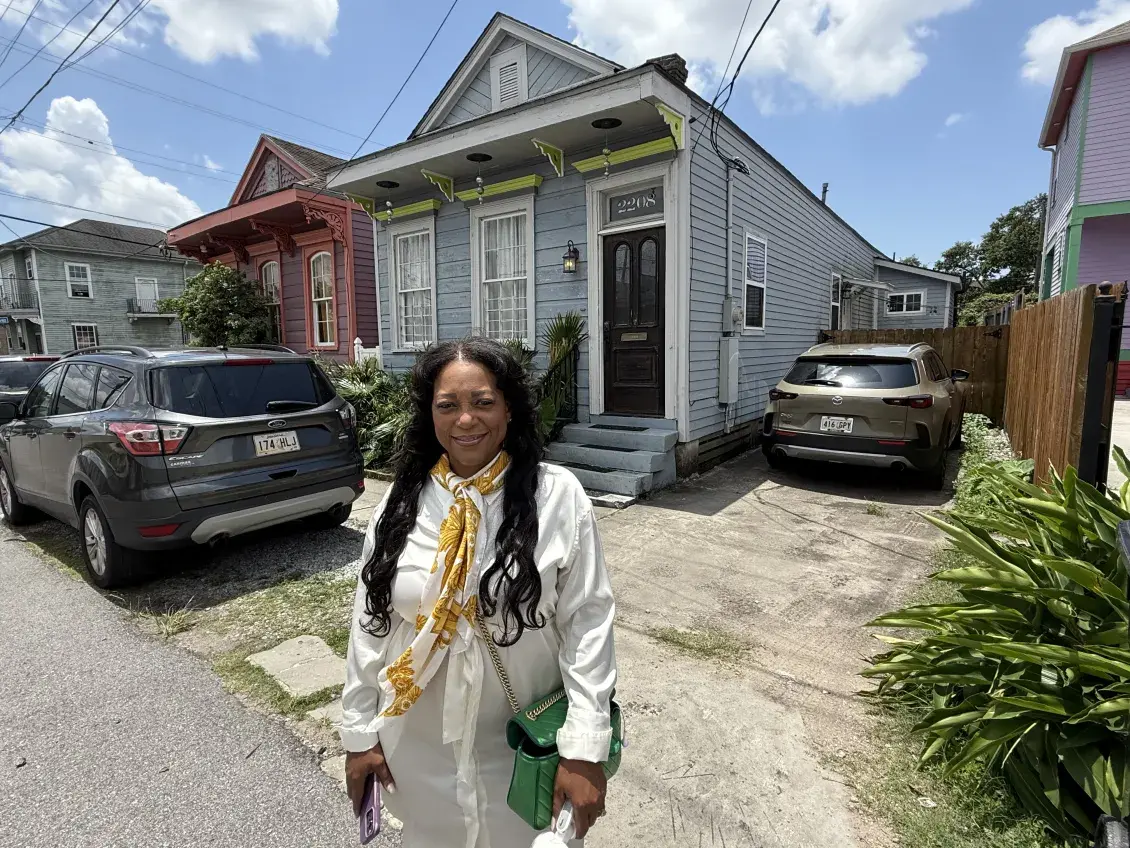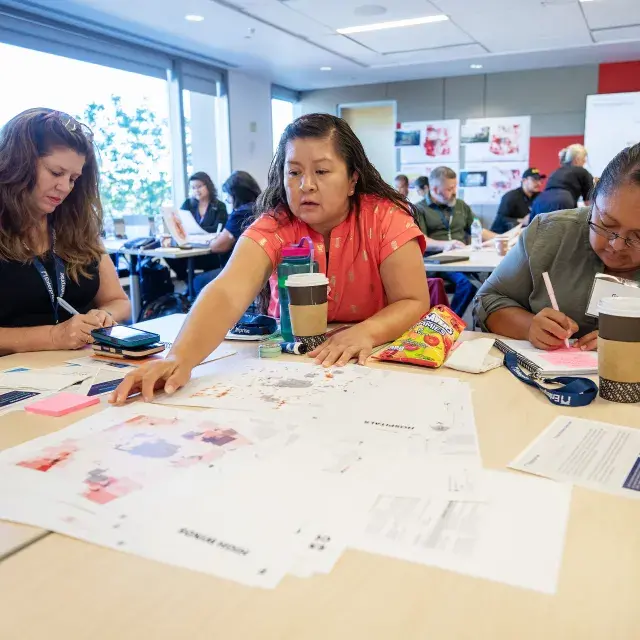In August of 2005, Rachelle Defillo was a young mother who had recently opened a clothing store in New Orleans’ French Quarter. The destruction and chaos that followed Hurricane Katrina upended her family’s life and her entrepreneurial plans.
In the 20 years that followed, Defillo has gone on to create new businesses, invest in real estate, and build the foundations for a new career chapter in community development and housing.
“The experience of Hurricane Katrina made me realize that even when things look uncertain, you need to keep moving forward,” said Defillo, who is an associate director for programs in Enterprise’s Gulf Coast office. “There’s still so much to be done to rebuild and revitalize our city for folks who are coming behind us.”
We recently spoke with Defillo about how the storm diverted her original path but ultimately inspired her to keep a focus on strengthening her hometown and community.
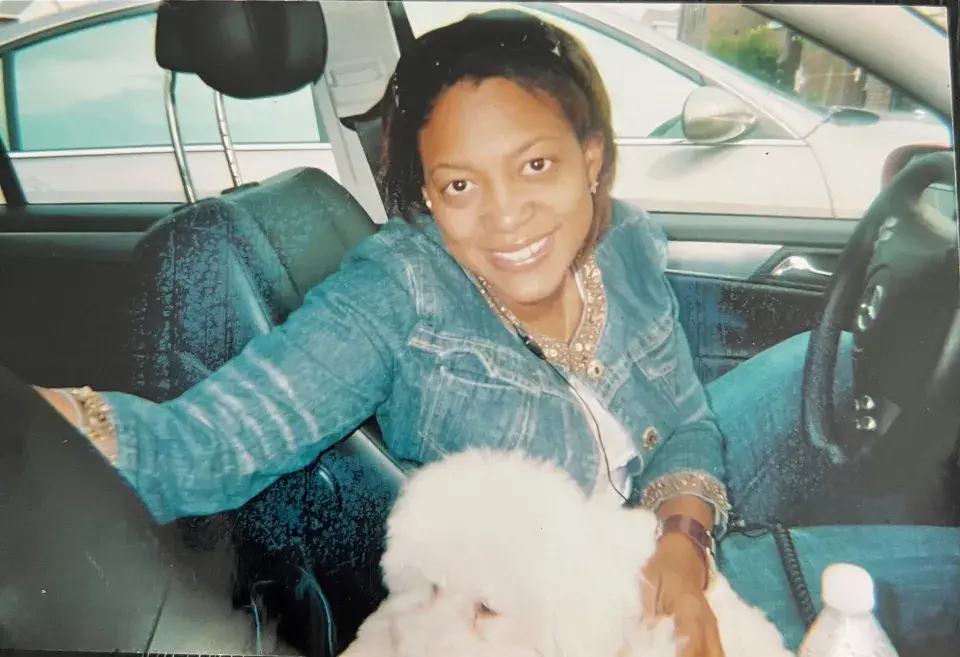
Life before Katrina I spent my earlier years in the 6th ward in a tightknit neighborhood, and there was a real sense of community. My great grandmother on my father’s side lived right down the street and everyone looked after one another. After spending a summer in Vallejo, California with my parents, my sister and I came home and moved in with my grandmother on my mother’s side of the family in the 9th Ward of New Orleans.
Even before Katrina, I had an entrepreneurial mindset. I always wanted to do something for myself, to build something. I partnered with two best friends, one a silent partner to run a clothing boutique in the French Quarter, working with patrons from the neighborhood and visitors to the city. It was more than just a business, it was a place for conversation, connection, and support. At the same time, I was a consultant with two separate firms focusing on education and safe schools.
When Katrina hit I was in Las Vegas for one of the largest apparel buying shows, gearing up to restock the French Quarter location and the grand opening of the second location scheduled for September 1, 2005, in Metairie. I had gone out there thinking it would just be a few days, but as the news started coming in, I realized how serious things were getting back home. My entire family — my mother, my sister, her two children and my two children — were on their way out of New Orleans, headed for Texas. I remember watching the news in a hotel room, panicked, trying to get in touch with them.
We’d been through storms before, but this was different. Seeing those images on TV of water rising, people stranded, was terrifying. Being separated at that time was one of the hardest parts.
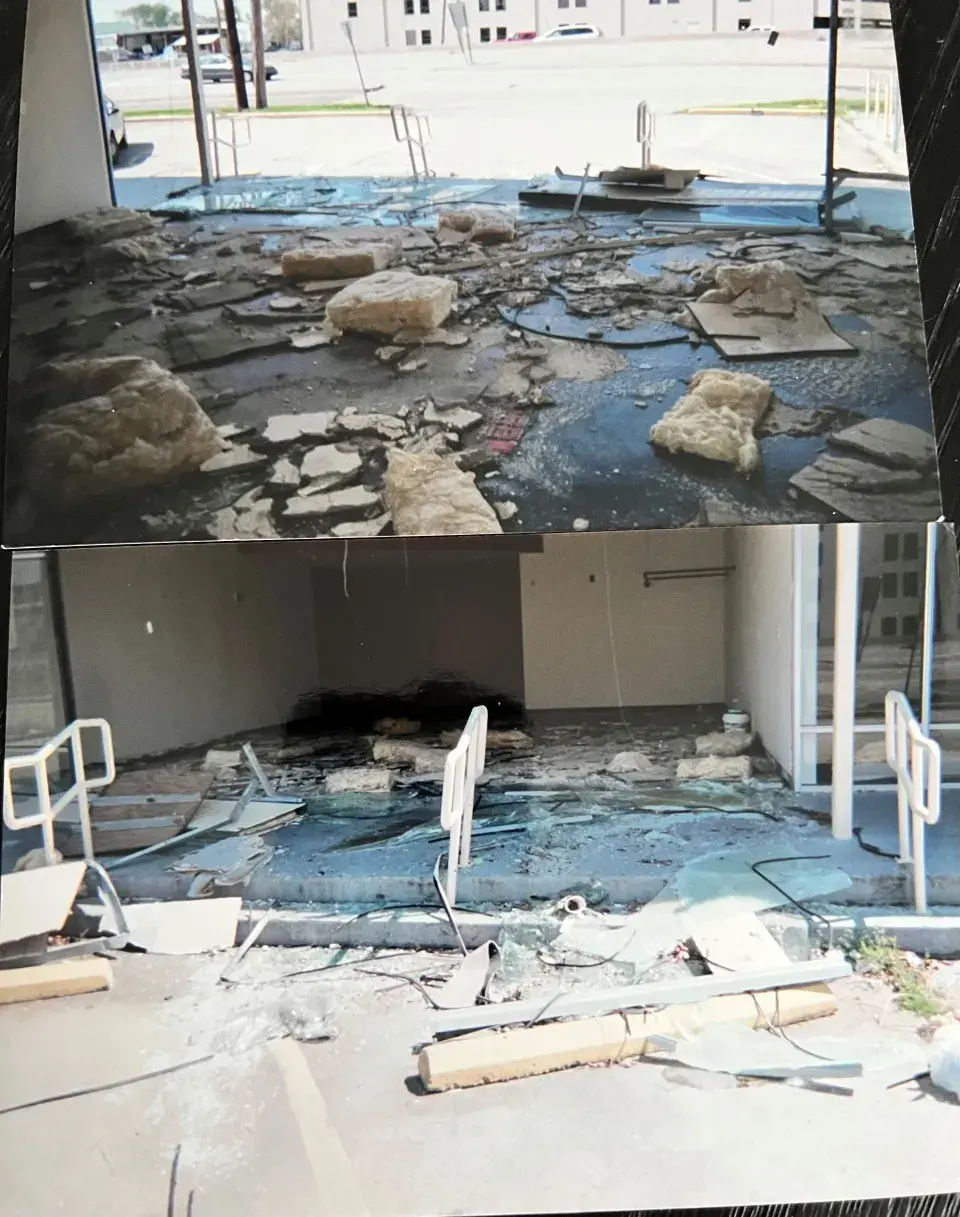
After Katrina Delta airlines got us on a flight from Las Vegas to Houston so I could meet up with my family. We ended up spending one year in Houston, but I came back to New Orleans often to check on things, tie up loose ends with the boutiques because the French Quarter landlord initially would not let me out of the lease. I was unaware of business interruption insurance and I had paid a deposit for the new location.
Coming back to the city was heartbreaking and not having anyone to fight to get the deposit back was even more devastating. Our home at the 17th street canal where the break occurred had been flooded. The streets looked nothing like they used to. Being an entrepreneur meant I had no unemployment benefits. And I was a recent renter with no renter’s insurance at that time, so I didn’t get anything from FEMA. I had nothing from home or the business but a few pieces of store furniture.
I kept important documents in a can tucked away at the top of my closet and they were OK. I was able to save my college degree and diploma even though they have mold stains. We lost pretty much everything else, including all our photo albums.
Life in Houston I was grateful for my uncle, a long-time resident of Houston who gave us a place to sleep for two weeks. We were then able to get a one- bedroom apartment with a voucher, but deep down, I missed New Orleans. The food, the culture, the people. You don’t realize how much it’s a part of you until you’re away from it.
I was familiar with Houston because I had spent some time there as a child. Eventually after the voucher expired I decided to purchase a home in Katy, Texas because the cost of renting would be the same and I wanted to bring comfort to my kids, especially my son battling with Sickle Cell Disease since birth. I opened the boutique in Montrose area of Houston which resembled Magazine Street in New Orleans.
Coming home to New Orleans Eventually, we made our way back. It wasn’t easy. Things weren’t the same, and the road to recovery was long. But being back in New Orleans, even through all the challenges, was comforting. We wanted to be part of putting it back together. I reopened my business on the Westbank of New Orleans that did not suffer severe damage and started reconnecting with people.
Resilience is in our DNA. What we went through with Katrina tested every part of us —mentally, emotionally, financially. But we kept going.
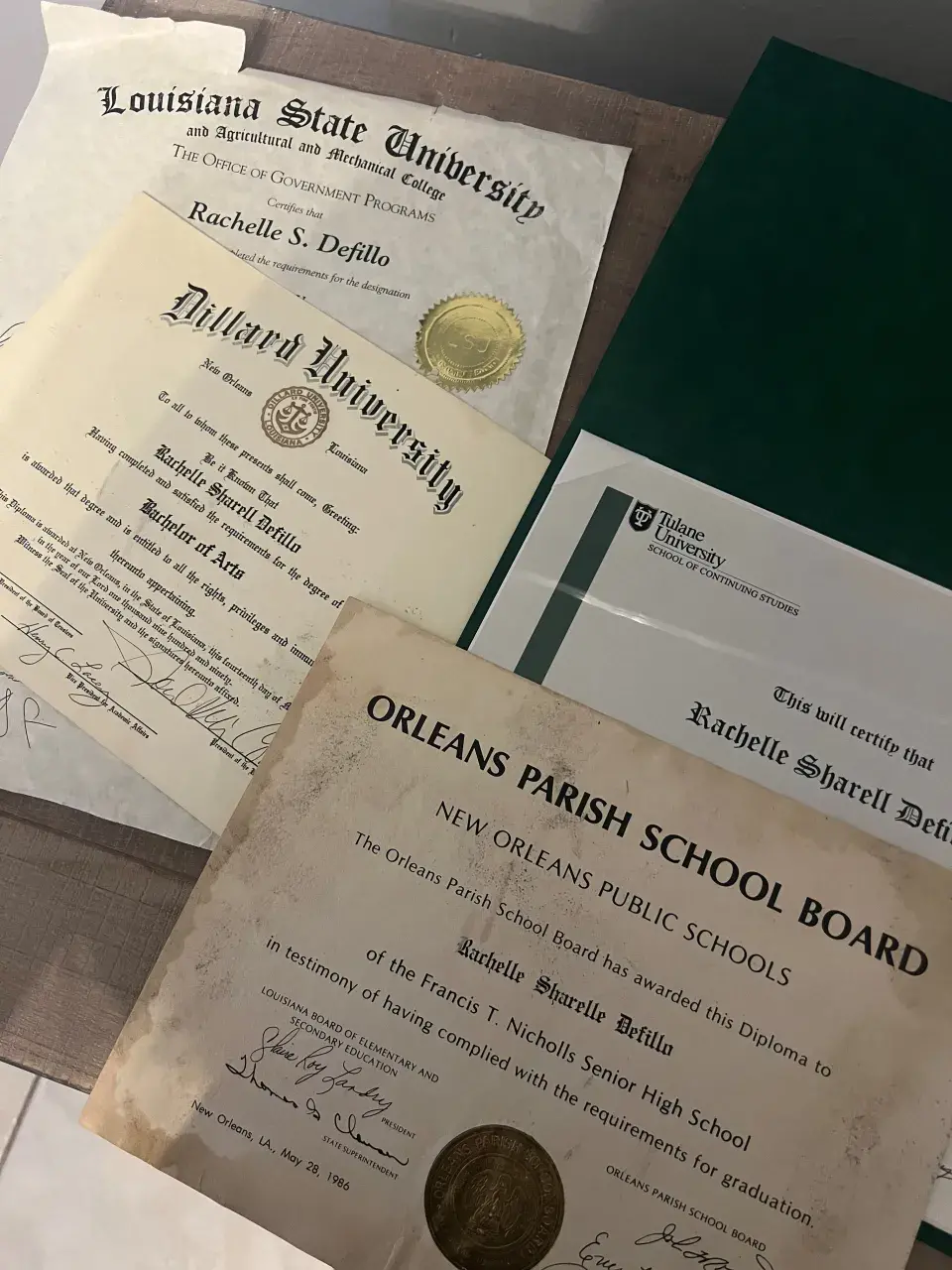
My career After Katrina I knew I had to rebuild not just my home but my career. I leaned harder into entrepreneurship. I expanded the clothing boutique, took on new customers, and started mentoring younger women in business. I realized my business was more than clothes—it was about building community.
Eventually, I also started working for the local government in workforce development for all the metro area. That experience opened my eyes to the power of public service and policy. I saw firsthand how decisions made at the top affected the lives of people trying to recover. That’s when I began to shift into public policy, wanting to be at the table to help shape a better future for our community. I learned it’s selfless acts that bring the greatest impact when you serve people.
What home means Home is comfort. It’s more than a location — it’s a place where I can say I have put my stamp on it. It’s a stable place for me and my adult children, grandkids, my mother, and my whole family.
I also feel at home when I come to work because there is comfort and a sense we are all working toward the same goals and with the same mission. At Enterprise I feel like we are here to do good for others, for families, and to make sure home is a good and comfortable place for everyone. It’s no coincidence that my work at Enterprise also covers Houston, which I once had to call home as a temporary refuge.
Katrina taught me that home can be shaken, even taken, but it’s also something you carry with you. And when you get the chance to return, you hold on tighter. You rebuild with intention. That’s what I’ve done — and that’s what I’ll keep doing.
